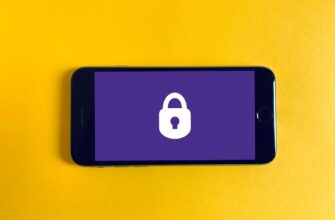## Finding Your Perfect Pocket Vault: Why the Best Bitcoin Wallet for Phone Matters
In today’s fast-paced digital world, managing your Bitcoin shouldn’t mean being chained to a desktop. Your smartphone is always with you, making it the ideal hub for interacting with your cryptocurrency. Choosing the **best Bitcoin wallet for phone** is crucial – it’s your primary tool for sending, receiving, securing, and even growing your BTC holdings on the go. A good mobile wallet balances robust security, intuitive usability, essential features, and reliable performance. With countless options flooding the app stores, finding the right one can feel overwhelming. This guide cuts through the noise, highlighting the top contenders and key factors to consider, ensuring you pick a wallet that fits your needs like a glove.
## Why Choose a Mobile Bitcoin Wallet?
Mobile wallets offer unparalleled convenience and accessibility:
* **Always Accessible:** Manage your Bitcoin anytime, anywhere – check balances, send payments, or receive funds instantly.
* **User-Friendly:** Designed for touchscreens, mobile wallets typically offer simpler, more intuitive interfaces than desktop counterparts.
* **QR Code Integration:** Effortlessly send and receive Bitcoin by scanning QR codes, streamlining transactions.
* **Enhanced Utility:** Many integrate with decentralized apps (dApps), exchanges, and DeFi protocols directly from your phone.
* **Backup & Recovery:** Secure seed phrase backup ensures you can recover your funds even if you lose or break your phone.
While hardware wallets offer the pinnacle of security for large holdings, a well-chosen mobile wallet provides an excellent blend of security and convenience for everyday Bitcoin use and smaller amounts.
## Top 5 Best Bitcoin Wallets for Phone in 2024
Based on security, features, ease of use, reputation, and community trust, here are the leading mobile Bitcoin wallets:
1. **Exodus (iOS & Android): The All-Rounder with Stunning Design**
* **Pros:** Exceptionally user-friendly interface with beautiful visualizations of your portfolio. Built-in exchange (via third-party partners) allows swapping between Bitcoin and numerous other cryptocurrencies without leaving the app. Excellent customer support. Open-source core.
* **Cons:** Not fully open-source (server-side components are closed). Exchange fees can be slightly higher than dedicated exchanges. Limited advanced features for power users.
* **Best For:** Beginners and users who value aesthetics, simplicity, and an all-in-one experience for multiple cryptocurrencies alongside Bitcoin.
2. **Trust Wallet (iOS & Android): The dApp Powerhouse (Owned by Binance)**
* **Pros:** Fully open-source and non-custodial. Exceptional built-in Web3 browser for seamless interaction with thousands of dApps, DeFi platforms, and NFT marketplaces. Supports a vast array of cryptocurrencies and blockchain networks. Strong security features.
* **Cons:** Interface, while functional, isn’t as polished as Exodus. Can feel overwhelming for absolute beginners due to the depth of Web3 features.
* **Best For:** Users heavily involved in DeFi, NFTs, and interacting with decentralized applications. Those who prioritize open-source software and broad multi-chain support.
3. **BlueWallet (iOS & Android): The Bitcoin-Focused Power Tool**
* **Pros:** Dedicated solely to Bitcoin (and Lightning Network). Open-source and highly focused. Excellent implementation of the Lightning Network for fast, cheap microtransactions. Offers watch-only wallets and collaborative multisig (Vault) features for enhanced security. Clean, functional interface.
* **Cons:** Only supports Bitcoin (and Lightning). Some advanced features (like multisig setup) require technical understanding.
* **Best For:** Bitcoin maximalists, users prioritizing Lightning Network usage, and those seeking advanced Bitcoin-specific features like multisig in a mobile format.
4. **Electrum (Android; iOS via unofficial ports like Electrum SV): The Veteran’s Choice**
* **Pros:** Long-standing reputation for security and reliability (primarily desktop, mobile versions exist). Highly customizable and feature-rich for power users (e.g., coin control, fee customization). Open-source. Supports hardware wallet integration.
* **Cons:** User interface is dated and less intuitive than modern competitors. Primarily Android-focused; iOS availability is unofficial and less straightforward. Setup can be more complex for beginners.
* **Best For:** Experienced Bitcoin users who prioritize maximum control, customization, and a proven track record, especially on Android.
5. **Coinbase Wallet (iOS & Android): The User-Friendly Gateway (Non-Custodial)**
* **Pros:** Very simple and intuitive setup/interface, ideal for beginners. Seamless integration with Coinbase exchange (but funds are self-custodied in the Wallet app). Built-in dApp browser and NFT support. Strong brand recognition.
* **Cons:** Less customizable than some competitors. While non-custodial, its close association with the centralized Coinbase exchange might deter some privacy-focused users.
* **Best For:** Beginners migrating from Coinbase exchange, users valuing extreme simplicity, and those new to self-custody who want a trusted name.
## Key Features to Look For in Your Mobile Bitcoin Wallet
When evaluating the **best Bitcoin wallet for phone**, prioritize these essential features:
* **Non-Custodial:** YOU control your private keys (and thus your Bitcoin). Avoid wallets where the provider holds your keys (custodial wallets like exchange apps), as this defeats the purpose of true Bitcoin ownership.
* **Strong Security:** Look for PIN/biometric (fingerprint/face ID) lock, mandatory encrypted backup via a 12/24-word recovery seed phrase, and open-source code (audited by the community).
* **User Experience (UX):** The interface should be intuitive and easy to navigate, especially for core functions like sending and receiving.
* **Backup & Recovery:** A straightforward, secure process for backing up your seed phrase (write it down offline!) is non-negotiable.
* **Transaction Control:** Ability to set custom transaction fees (sat/vByte) is important for optimizing cost vs. speed.
* **Additional Features (Optional but valuable):** Lightning Network support, multi-currency support, dApp browser, hardware wallet integration, coin control, multisignature options.
* **Reputation & Development:** Choose wallets with a strong track record, active development, and responsive support.
## Frequently Asked Questions (FAQ) About Mobile Bitcoin Wallets
**Q1: Are mobile Bitcoin wallets safe?**
**A:** Reputable non-custodial mobile wallets with strong security features (seed phrase backup, PIN/biometric lock) are very safe for everyday use and moderate amounts of Bitcoin. However, they are connected to the internet (“hot” wallets), making them inherently less secure against sophisticated hacks than offline “cold” storage (hardware wallets or paper wallets). Never store large amounts long-term on a hot wallet.
**Q2: What happens if I lose my phone?**
**A:** As long as you have securely backed up your 12 or 24-word recovery seed phrase (and kept it offline and private!), you can recover your Bitcoin on a new device using any compatible wallet software. Losing the seed phrase means losing your Bitcoin forever.
**Q3: Do I need to pay fees to use a mobile Bitcoin wallet?**
**A:** The wallet software itself is typically free to download and use. However, you **always** pay Bitcoin network transaction fees (miner fees) when sending BTC from your wallet. The wallet may suggest a fee, but good wallets let you adjust it.
**Q4: Can I buy Bitcoin directly in a mobile wallet?**
**A:** Many wallets (like Exodus, Trust Wallet, Coinbase Wallet) offer integrated “buy” features using third-party services (e.g., MoonPay, Simplex). This is convenient but usually involves higher fees and KYC verification compared to using a dedicated exchange. You can always buy elsewhere and send BTC to your mobile wallet.
**Q5: What’s the difference between a custodial and non-custodial wallet?**
**A:** *Non-Custodial (Recommended):* You control the private keys. The wallet provider cannot access your funds. You are solely responsible for security and backups (seed phrase). *Custodial:* The wallet provider (like an exchange app – Coinbase App, Binance App) holds your private keys. You have an IOU. Easier for beginners but you don’t truly own your Bitcoin, and you rely on the provider’s security and solvency.
**Q6: Should I use a wallet that only supports Bitcoin or a multi-currency one?**
**A:** It depends. If you only hold Bitcoin, a dedicated wallet (like BlueWallet) can offer optimized features and simplicity. If you hold multiple cryptocurrencies, a multi-currency wallet (like Exodus, Trust Wallet) is far more convenient for managing everything in one place. Ensure any multi-currency wallet has strong support specifically for Bitcoin.
**Choose wisely, secure your seed phrase, and enjoy the freedom of managing your Bitcoin from the palm of your hand!**








